Amy and Marco Becerra began caring for their adopted daughter, Angela, when she was just weeks old, but it took years for the couple to officially welcome the tiny Peruvian girl into their family. After a rigorous process with Peru's family court, taking physical and psychological exams to prove they were up for a lifetime with Angela, the Becerras thought she was finally theirs. But things began to fall apart once they tried to secure legal status for her in the United States.
Last summer, when the family was attempting to move back to the U.S. from Peru, they learned that U.S. Citizenship and Immigration Services denied their application for Angela's residency. Before they could bring her to their new home in Colorado, they waited more than a year for her to be granted a tourist visa. But that temporary status was set to end on August 31, and the possibility that the 4-year-old would become undocumented or deported hung over the family.
They finally found relief when Fox 31 broke the story, which prompted U.S. House Rep. Mike Coffman to step in. The decision to deny Angela residency was quickly reversed.
But the Becerras are not the only family who have gotten lost in America's legal immigration process and faced separation as a result. And not everyone has a congressman to push their case through the quagmire.
While politicians struggle to pass some kind of federal immigration reform, a backlog of cases have piled up for immigration officials that's overwhelmed the system and caused concern for people with all varieties of legally acceptable claims to enter the country.
While the laws and the processes are often complicated and convoluted, the results can be straightforward, like having to send your 4-year-old back to Peru. And even if a political solution can be reached in Washington, it might not be enough to get immigration cases through the system as fast as they used to.
Coffman blamed the Becerra family's nightmare on a broken bureaucracy.
Earlier this month, Coffman held a press conference in his Aurora office with the Becerras by his side. He used it as an opportunity to speak broadly about American immigration.
"What a broken immigration system that would even think about deporting a 4-year-old?" he lamented to the press. "It has to go beyond bureaucratic rules and walls, and there has to be a human component to this."
Before she got reporters' attention, Amy said she tried fruitlessly for a year to find someone at U.S. Citizenship and Immigration Services (USCIS) to tell her why Angela's case was denied, if not also help. She was unable to break through.
"It was ridiculous, it was terrible," she said. USCIS and the Department of Homeland Security had conflicting information on their websites, and calling in to clarify didn't help.
"With USCIS there is very little ability to talk to a human being that has any real knowledge," she said. "They do have a 1-800 customer service line that you can call and get a person on the line, but then they will read to you directly off the website."
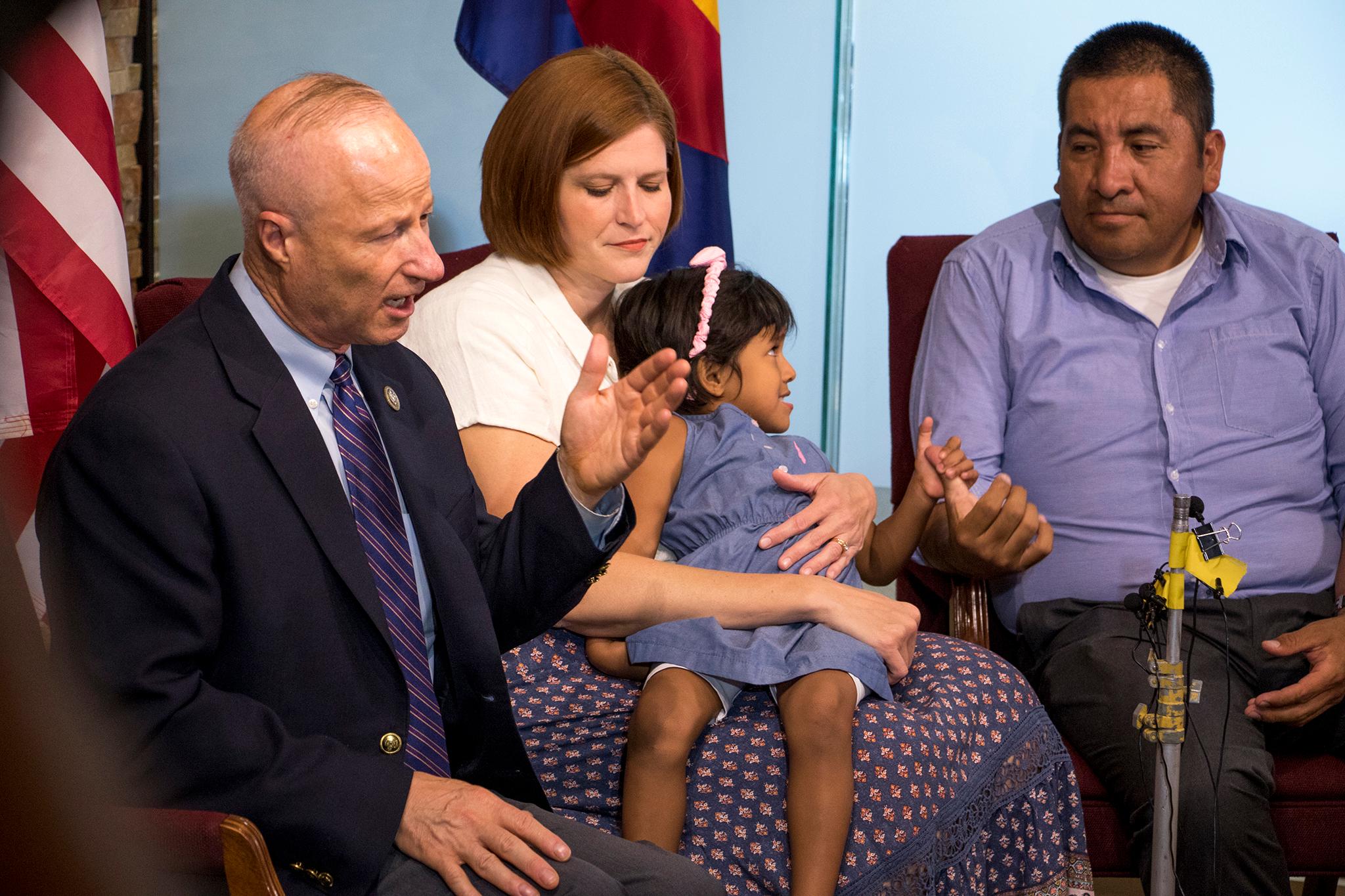
Denver-based immigration attorney Hans Meyer said he's not surprised by the Becerra family's experience with the citizenship agency. He said wait times for standard applications and straightforward cases have doubled or even tripled since the Trump administration took office, shifting department priorities and adding tougher screening practices.
"They can’t get cases decided, they can’t get their green cards or continue on with employment or travel," he said.
These days every consultation begins with a conversation about how things are tougher now even for qualified people. He called it "a process of suspension or purgatory."
Meyer said it's not uncommon for families like the Becerras to file and refile case documents as they attempt to navigate the process, and each time they're required to pay again to submit their paperwork. Amy said her family ended up spending upwards of $1,000 on fees alone before Coffman stepped in. They need at least another $1,000 to complete the process, but a spokesperson for Coffman said the congressman has agreed to foot the bill with his own money.
The system's failings may be less about how it's organized and more about how it's directed.
While the Becerras were waiting to see if Angela would be allowed to stay in the country, Faisal Jameel was also hoping for word that his two adult sons would finally be allowed to join him in Denver.
Jameel was a software developer from Kuwait who had to leave his home country when conflict erupted there. He crossed the border into Iraq in 1991, where he eventually became a translator for British and then American forces during the Gulf War. His service allowed him to access a special immigration process to move to the U.S.
Jennifer Wilson, executive director of the International Rescue Committee, the agency that resettled Jameel in 2017, said the program was set up "recognizing the extreme vulnerability of this population and also the ways in which they have supported the U.S. and come into harm's way as a result."
His wife, three daughters and two sons were also granted entry. But just as the family was getting ready to go, the Trump administration began their first crack at limiting immigration from Muslim-majority countries and set tougher restrictions for people processed through various special visa programs.
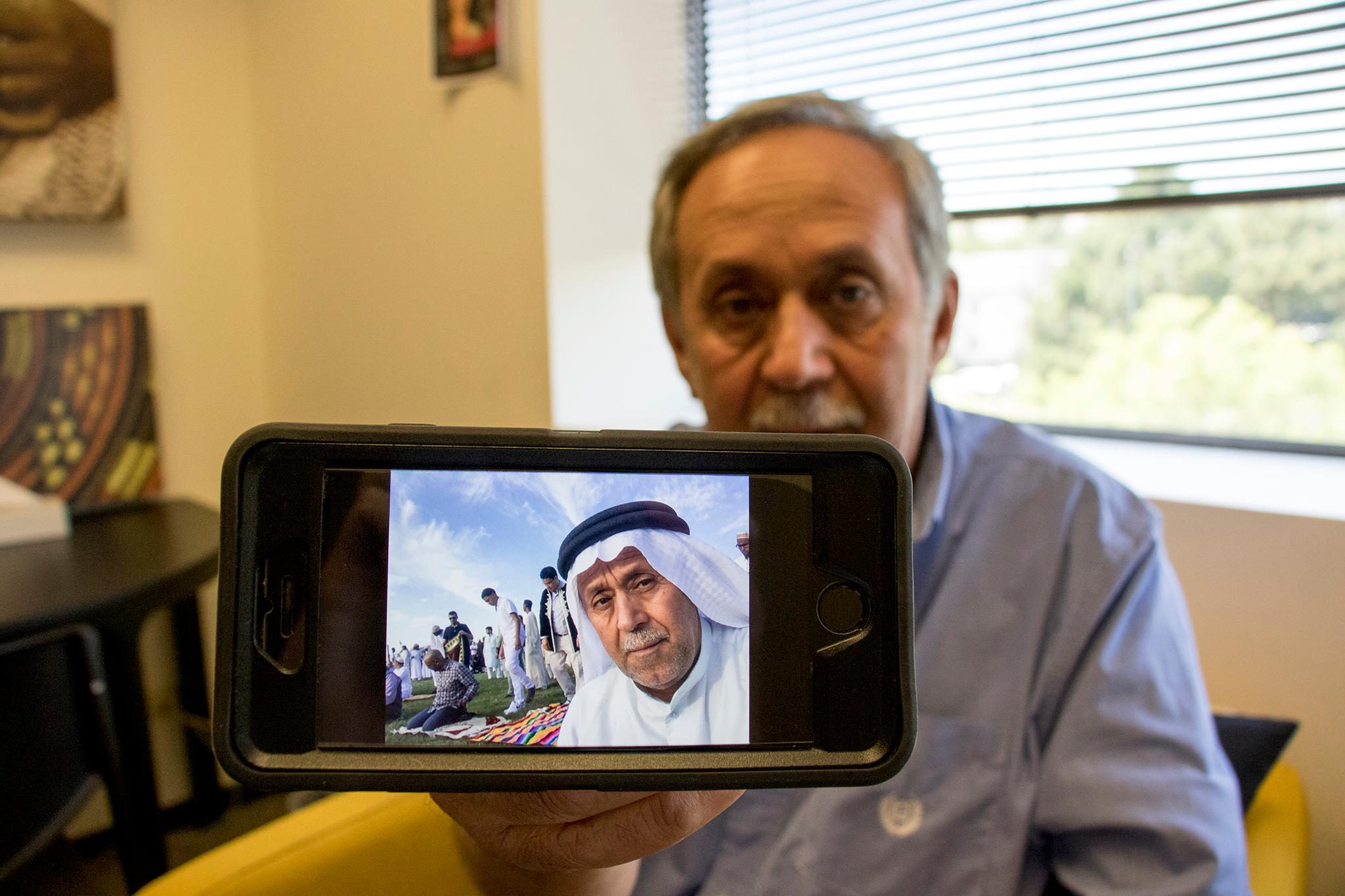
Because Jameel filed before that policy shift, he made it to Denver with his wife and daughters. But his two adult sons, who were given separate case numbers as a regular part of the procedure, had to restart the process.
"The administration has said, 'Well we have security concerns, so we are going to further expand this clearance process, and basically everybody who was already cleared has to go back and go through it again,'" Wilson said.
Another policy shift required women, for the first time, to undergo a full security screening. As a result, Wilson said, "The number of people who have to get this clearance has at least doubled."
These longer lines resulted in more administrative chaos.
When they were ready to leave Iraq, Jameel's sons had separate medical and security checks confirmed as were required. Those documents expired before they were able to get back to the front of the line, which Wilson said has become a common problem.
For Jameel's sons, she said, "It will probably be several years until they know whether they’re approved to come again under these expanded measures."
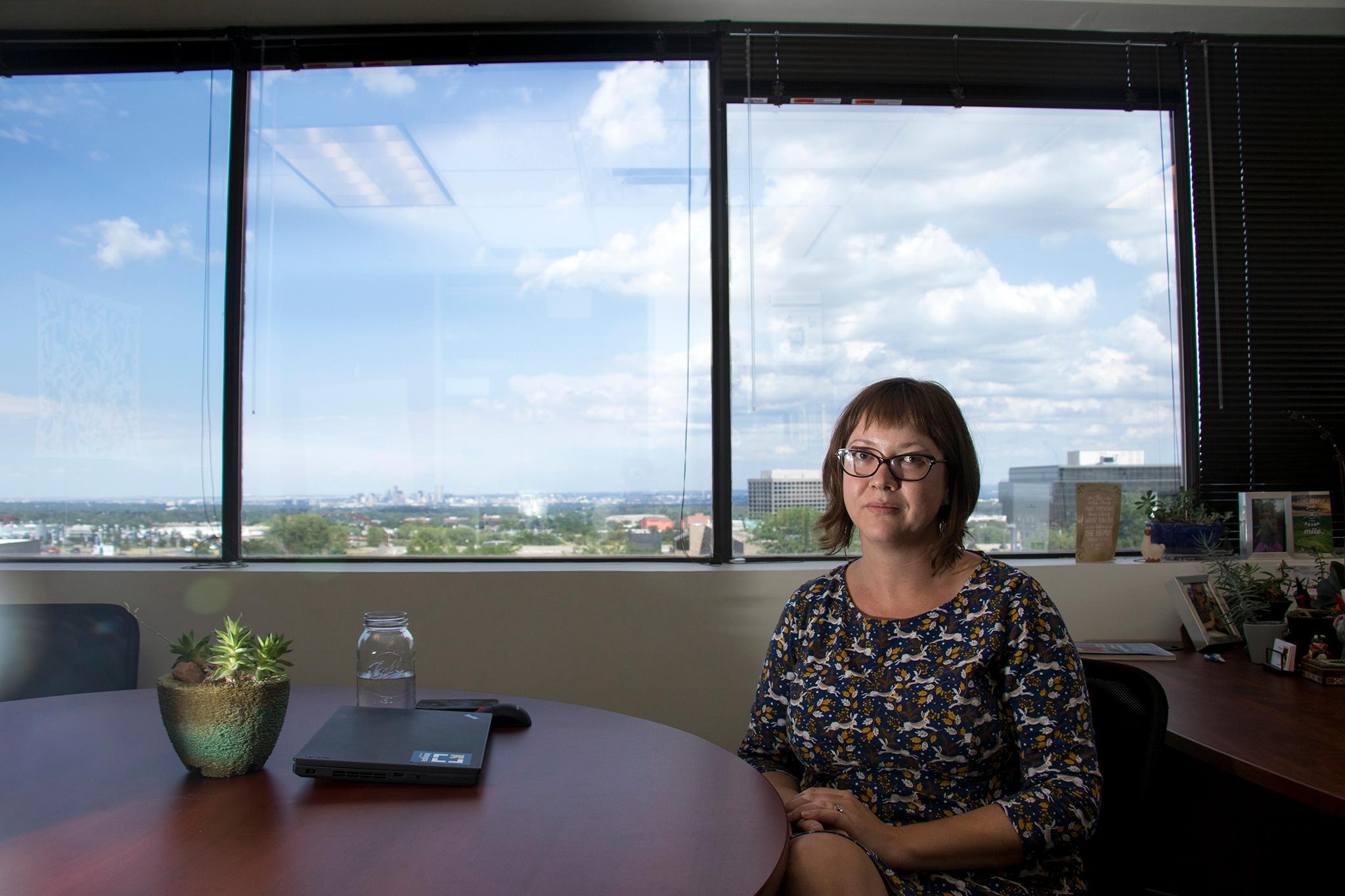
Meanwhile, Jameel has had to watch his grandson's birth from the other side of the globe.
When he found out his daughter-in-law was pregnant, he said, "I cried."
He's content visiting his grandchildren via video chat for now, but Jameel said it's getting harder.
"If they were going to come with me, I would be relaxed," he said. "I am anxious. Anxious for my future."
Wilson said the system, overburdened with so many new cases, also lacks the willpower to take them on.
"It takes all sorts of federal intelligence and security agencies," she said, "and that means that someone has to be motivated to ensure those resources are in place to move people through the process. What we’re seeing right now is that those clearances aren’t moving."
The delays could seem like a mere annoyance, but especially for people trying to leave a country like Iraq, Wilson said, "Even a couple of years is enough time for people to be in the way of extreme harm."
For people fighting cases with solid legal clearance inside the country, Meyer also said their roadblocks have been the result of new direction.
"The proof is in the pudding," he said. "There are a lot of changes in how applications are being accepted processed and decided, and there’s been no change in the law."
USCIS was built to roll out legal residency and citizenship for those who qualify and distribute the benefits that come with each, but Meyer said it's just not happening.
"There’s an intent behind that, and the intent is to delay and slow down and frustrate and complicate the existing immigration process," he said. "It’s been under the Trump administration that those processes have, in many ways, ground to a halt, and that hasn’t been due to a change in law. That’s been due to a change in agency implementation."
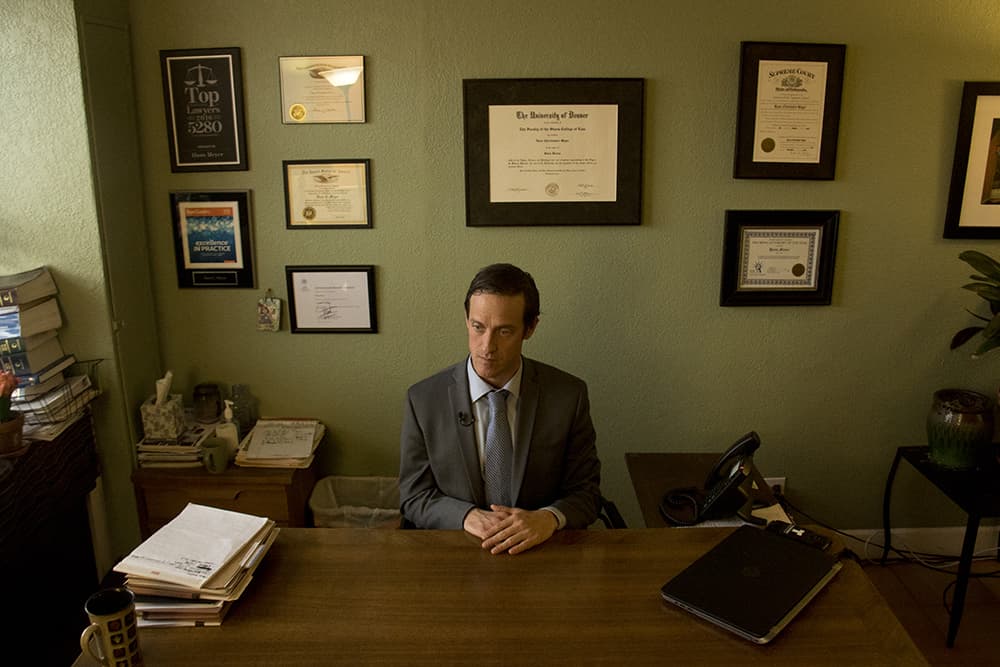
Solutions might be hard to come by.
Ever since Attorney General Jeff Sessions announced Deferred Action for Childhood Arrivals, or DACA, would be rescinded, congressional leaders in the House and Senate have had a fire lit beneath them to pass some kind of immigration policy reform. Conservative representatives have pushed to fund more intense border security and enforcement, while progressives have advocated for sweeping allowances for Dreamers and people from a handful of countries who will lose Temporary Protected Status.
These extreme differences in perspective have resulted in a lot of nonstarters, and matters have been complicated by leadership who have refused to bring bills to a vote and threats by President Trump to veto bills that otherwise may have had bipartisan support.
Further complicating these issues is the sheer number of case types that are wrapped up in immigration policy, from Dreamers to legal adoptions to special programs for people from Iraq or El Salvador.
During his press conference, Coffman said "the problem solvers," a bipartisan group of legislators of which he's a member, are getting close to a proposal that aims to bring a "human component" into the system, and will announce a bill in September. He said the believes they're close to enough votes to pass such a measure, but some legislators may not jump on board.
"Part of the problem is this: I think that members in Congress, some don’t have diverse districts and so they’re never confronted with cases like this, so they don’t understand the human component to it," he said. "I think a lot of members of Congress saw it when they were tearing families apart at the border, that wasn’t the right thing to do and we ought to keep families together."
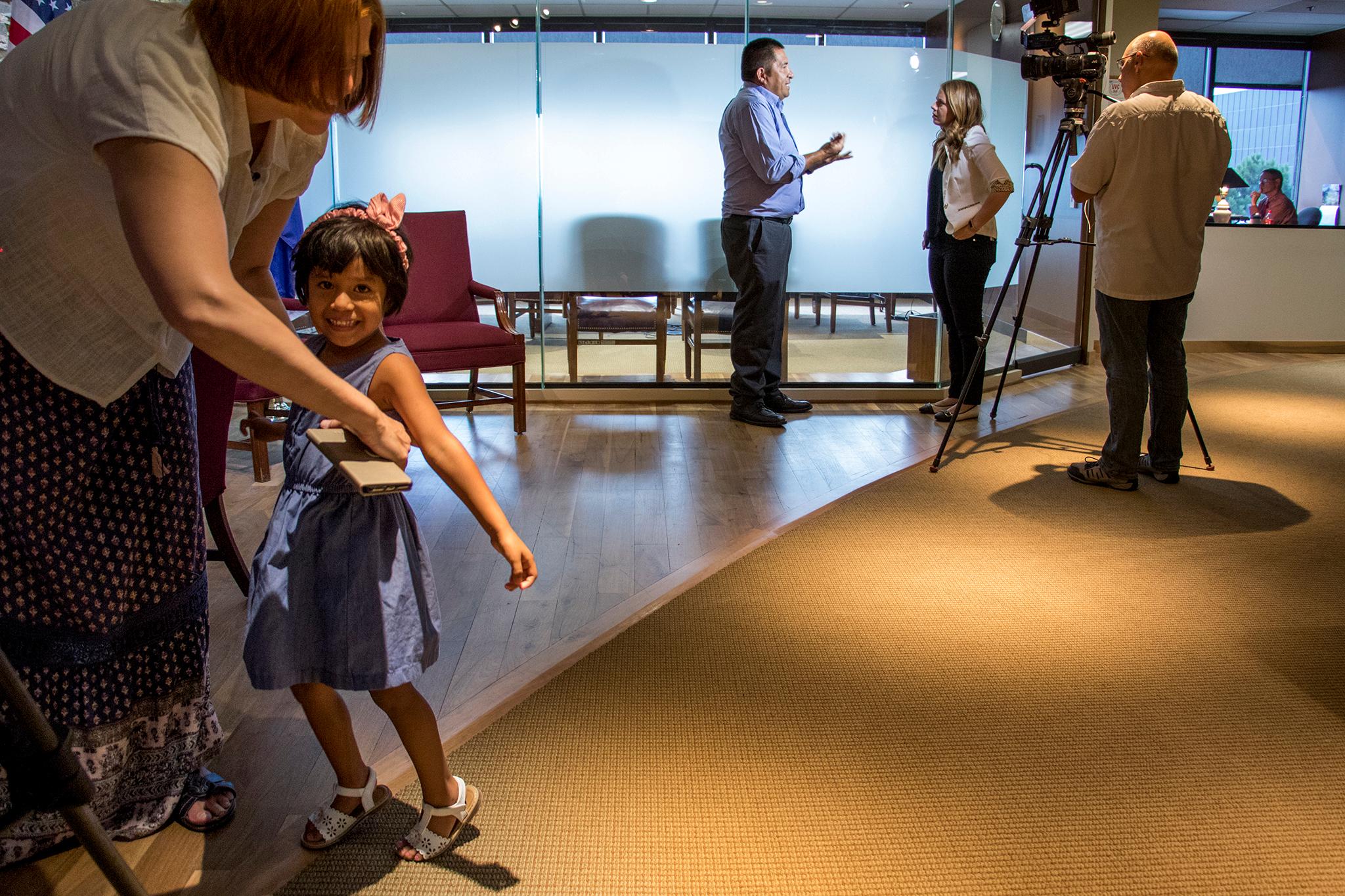
Meyer said he's skeptical that legislation would do the trick.
"I’d like to think that legislation can change it, but I’m not sure that’s logistically feasible," he said. Adding more operators to tell people like Faisal Jameel or Amy Becerras that "your case is pending" isn't enough, he said.
What's needed, he said, is that agencies have "willpower to actually adjudicate cases and have the resources to do be able to do those in a timely fashion."













